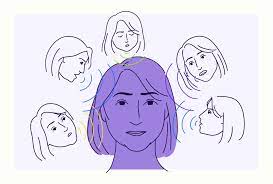Group Homes for Veterans Who Are Homeless with Mental Health Issues-A Comprehensive Nursing Paper Sample
Margodene Robinson
Institutional Affiliation,
Date.
Kermit Jones,
- O. Box 1713,
Roseville, Ca 95661.
RE: Opening Up Group Homes for Veterans Who Are Homeless with Mental Health Issues
I am writing to you as a graduate student regarding the issue of homelessness among veterans with mental health problems. I was impressed by your history as a medical doctor working with the U.S. Navy in Iraq. I believe you are the best choice for the people of California’s 3rd Congressional District and are among the few policymakers who understand the plight of veterans. I urge you to support opening group homes for homeless veterans facing mental health issues once you become a representative. We believe veterans are one of our most valuable assets as a society, and our effort aims to offer a home and access to health and supportive services.(Group Homes for Veterans Who Are Homeless with Mental Health Issues-A Comprehensive Nursing Paper Sample)

Introduction
Homelessness among veterans can be traced back to the Reconstruction Era when this group made up the general homeless population. The problem was more vivid to the public after the Vietnam War. Economic instability post-Vietnam war contributed to a significant number of veterans becoming homeless. According to the U.S. Department of Veterans Affairs, most homeless veterans in the U.S. are predominantly male, with fewer females. It estimates that around 40,000 veterans are homeless on any night (Stasha, 2022). Notably, a significant number of homeless veterans are African Americans. According to V.A.’s data, about 11 percent of veterans presented with an increased rate of depression. Approximately 1.15 million veterans are diagnosed with at least one mental illness, depression, PTSD, SUD, anxiety disorder, and SMI being the most significant. People with mental illness (30-35%), including veterans, are more likely to experience homelessness for more extended periods. This proposal aims to address the plight of veterans after they leave service, devising strategies that can help solve the issue of homelessness.(Group Homes for Veterans Who Are Homeless with Mental Health Issues-A Comprehensive Nursing Paper Sample)
Overview of the Problem
Veterans Day was created to acknowledge with respect and appreciation individuals that served in the U.S. Armed Forces. Sadly, many veterans become homeless for various reasons, including economic struggle, mental health, and failure to get benefits. A lack of access to transitional resources and full benefits prevents most veterans from affording housing after separating from the forces. Most homeless veterans (96%) are single males from disadvantaged communities who served in WWII, Korean War, Cold War, Vietnam war, Panama, Lebanon, Grenada, Operation Enduring Freedom (Afghanistan), Operation Iraqi Freedom, and the military’s anti-drug cultivation efforts in South America (Green Doors, 2018). Although the number of homeless veterans has decreased considerably since 2011, the number of those who remain homeless is still huge. Eight percent of U.S. citizens are veterans, but 17% of the homeless population comprises veterans (Green Doors, 2018). V.A. estimates that around 40,000 veterans are homeless on any particular day.(Group Homes for Veterans Who Are Homeless with Mental Health Issues-A Comprehensive Nursing Paper Sample)
The problem is direr for Black veterans who face a higher risk of becoming homeless and suffering from mental health problems. For generations, African Americans coming back from war were more likely to experience discrimination, disrespect, violence, and death threats. The fate of African American soldiers is connected to White Supremacy and the fear that if Black soldiers were allowed to claim the veteran status, they would increase the call for their political rights to be respected. In August 1917, U.S. Senator James Vardaman of Mississippi warned of the same, claiming “but a short step to conclude that his political rights must be respected” (Equal Justice Initiative, 2018). While Black men and women have fought and served tirelessly and bravely for the U.S. Armed Forces, they are at an increased risk of experiencing mental health problems and homelessness than their white counterparts. African American veterans fight dual battles, abroad defending the country and at home defending themselves.(Group Homes for Veterans Who Are Homeless with Mental Health Issues-A Comprehensive Nursing Paper Sample)
The Black Veterans Project states that Black veterans are at a higher risk of homelessness, unemployment, and jail time than White veterans. Many Black veterans struggle to access V.A. benefits, which prevents them from accessing affordable housing. According to David Kendrick, an African American veteran, there is no voice for Black veterans (11Alive, 2021). The Black Veterans Project also states that Black Veterans are twice more likely to experience poverty than white veterans. Black veterans need a voice, and it is high time they are connected with people, especially representatives, who can help them navigate the system to access full benefits like other veterans.(Group Homes for Veterans Who Are Homeless with Mental Health Issues-A Comprehensive Nursing Paper Sample)

Solution
The proposed solution is opening up group homes for homeless veterans with mental health issues. Establishing group homes would be an excellent service to the country and the veterans. Access to transitioning resources has been a challenge for many veterans, particularly African American veterans. Most veterans return wounded, old, or with other disabilities that limit their capacity to work after service. Starting group homes, which serve as a transitional housing program for veterans, is one of the solutions to address the homelessness problem. They will provide shelter, food, medical services, and other basic living requirements for the veterans. They will provide the special care veterans returning from service to the country deserve.(Group Homes for Veterans Who Are Homeless with Mental Health Issues-A Comprehensive Nursing Paper Sample)
Staring group homes is a project that needs the participation of many stakeholders, including policymakers. The project needs funding, policy support, and community help. Starting a group home requires property, either a purchased home, leased, or rented home. The property needs to be close to a hospital, grocery store, and other vital social amenities. Proper licenses and permits are also required to start a group home. Help is needed to complete the necessary paperwork from the state’s department of human services and acquire appropriate authorizations to start the group home.
Most importantly, funds are needed to support the group home, and one of the ways to be funded is through grants from government and charitable organizations. Resources for support, such as additional staff, are required, especially occupational therapists, skilled nurses, mental health counselors, and educators. Currently, no state home for veterans is run for free, and veterans have to pay some fees. This fee limits homeless veterans from accessing the services. The group homes need to be entirely free to encourage homeless veterans to utilize the resources.(Group Homes for Veterans Who Are Homeless with Mental Health Issues-A Comprehensive Nursing Paper Sample)
How a Representative Can Help Garner Support for the Initiative
Starting group homes to address homelessness can be rewarding, and a representative’s help would be much appreciated. As a representative, you advocate for the needs of your constituents, acting as people’s voice in the government. Expressly, you also understand and know the people and their needs. Your uniquely positioned representative role in policymaking is an excellent resource and could prove influential in increasing awareness of homelessness among veterans. Hence, I believe that homelessness among veterans with mental health is an issue that requires government attention, and a representative is best suited to bring the matter to Congress.
Dear Jones, I believe you will win the elections to represent the people of California’s 3rd Congressional District. Given your history and your motive for running for the seat, you are better informed about the problems veterans, especially Black veterans, face in the U.S. I propose starting group homes for veterans with mental health problems as a solution to address homelessness among the vulnerable group. Bringing the issue to Congress would bring it closer to public attention, pressuring the government and appropriate institutions to act accordingly to support the initiative. (Group Homes for Veterans Who Are Homeless with Mental Health Issues-A Comprehensive Nursing Paper Sample)

Services
Opening group homes is a commitment to enhancing the lives of homeless veterans with mental health issues. The homes’ comprehensive care model considers veterans’ medical, personal, and emotional needs. Staff employed will be capable of serving the veteran’s needs and providing an environment that demonstrates honor to their service to the country. It will help provide stable housing, meals, medication assistance, assistance with activities of daily living, transportation to and from appointments, and group sessions for support facilitated by medical practitioners twice a week.(Group Homes for Veterans Who Are Homeless with Mental Health Issues-A Comprehensive Nursing Paper Sample)
The predominant service would be nursing home care. Veterans will receive long-term care, including physical and mental. The trained medical and care professionals would ensure the veterans are healthy and all their daily needs are met. The staff will create menus to offer balanced nutrition with an appropriate culinary experience. Professionals working in the group homes will establish meaningful and creative programs to engage resident veterans in the community and bring excitement to their lives. The long-term care program will engage family members to promote complete care. Housing services will be temporary and semi-permanent before the veterans get new permanent homes or are connected with their families.(Group Homes for Veterans Who Are Homeless with Mental Health Issues-A Comprehensive Nursing Paper Sample)
The group homes will offer a personal touch than a hospital or a nursing home facility, reducing the loneliness. The veterans will be assisted and connected to a church and other religious houses, senior centers, and medical care facilities. They will have more freedom and engage in more activities than nursing homes or hospitals. The primary problem is homelessness, and it is crucial to ensure the group homes provide an atmosphere that feels like home by offering services like housekeeping and laundry, personal care, activities like games, arts and crafts, group activities and movies, and medication management. Residents will enjoy 24 hours phone access to private and communal areas, outdoor areas, and meals for special diets. (Group Homes for Veterans Who Are Homeless with Mental Health Issues-A Comprehensive Nursing Paper Sample)
Conclusion
Homelessness is becoming a crisis in the United States due to the lack of affordable housing for a considerable number of U.S. citizens. Homeless veterans comprise 17% of the homeless population in the U.S., and African American veterans are more likely to experience homelessness than white veterans. The issue of homelessness among veterans with mental health problems deserves public and government attention, and a representative is better positioned to bring the matter to Congress for addressing. It is fundamental to address homelessness among veterans with mental health issues, and the proposed solution is to start group homes that offer stable housing, meals, medication assistance, assistance with activities of daily living, transportation to and from appointments, and group sessions for support facilitated by medical practitioners twice a week. A representative’s help garnering support for the initiative would be much appreciated.(Group Homes for Veterans Who Are Homeless with Mental Health Issues-A Comprehensive Nursing Paper Sample)
References
Green Doors. (2018). Veteran Homelessness Facts. https://www.greendoors.org/facts/veteran-homelessness.php(Group Homes for Veterans Who Are Homeless with Mental Health Issues-A Comprehensive Nursing Paper Sample)
Equal Justice Initiative. (2018, December). The struggle of Black veterans. https://eji.org/news/struggle-of-black-veterans/(Group Homes for Veterans Who Are Homeless with Mental Health Issues-A Comprehensive Nursing Paper Sample)
11Alive. (2021, August 11). Veterans of color struggle to get equal access to benefits. https://www.11alive.com/article/news/community/voices-for-equality/minority-veterans-access-to-benefits-difficulties/85-77c059e7-1e83-48f3-b902-c73d4274083c(Group Homes for Veterans Who Are Homeless with Mental Health Issues-A Comprehensive Nursing Paper Sample)
Stasha, S. (2022, March 5). How many veterans will be homeless in the U.S. in 2022? https://policyadvice.com/insurance/insights/homeless-veterans-statistics/

